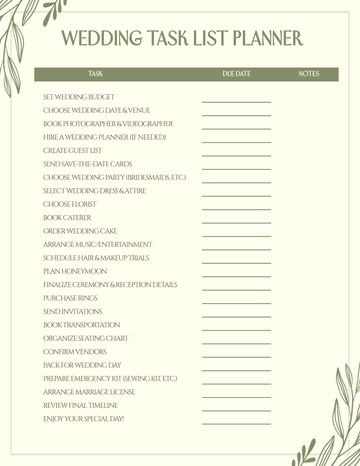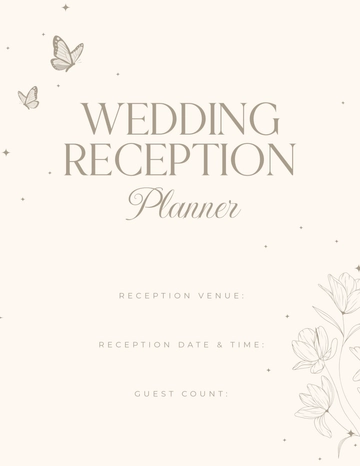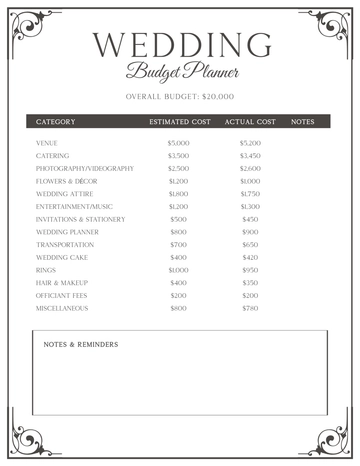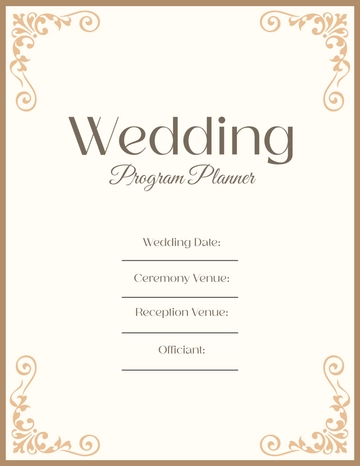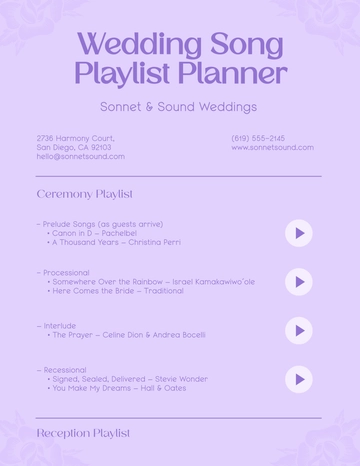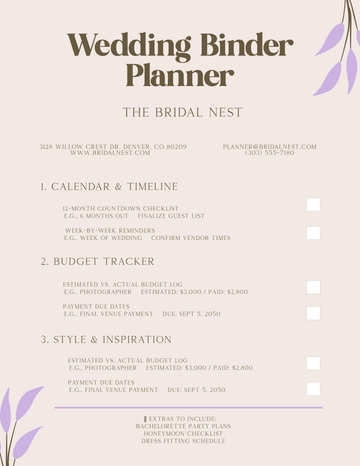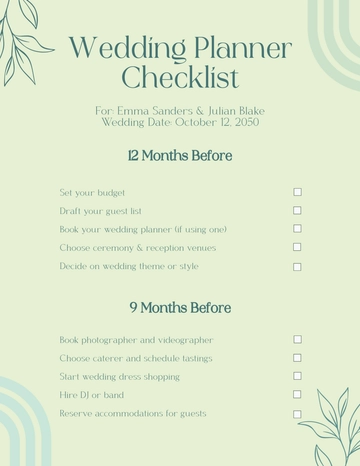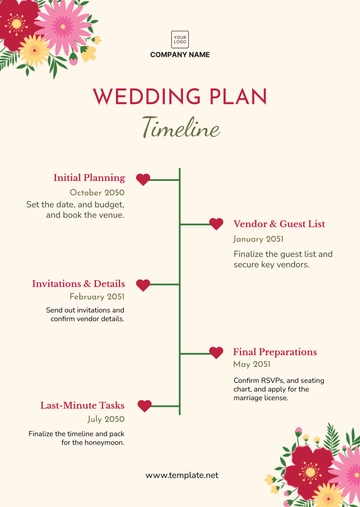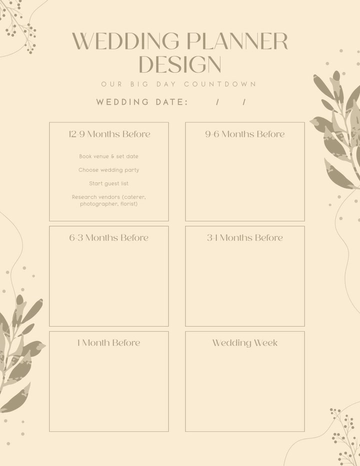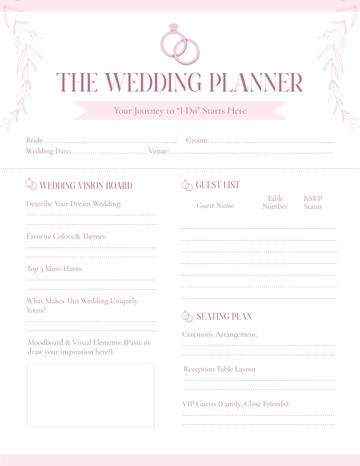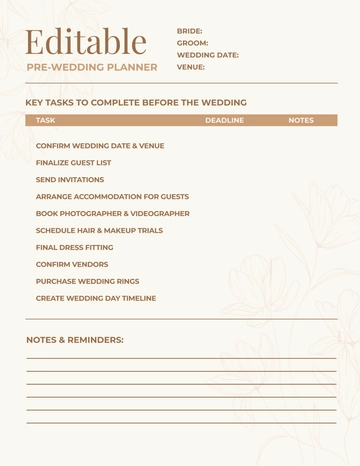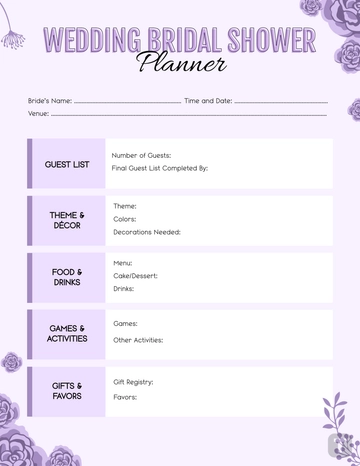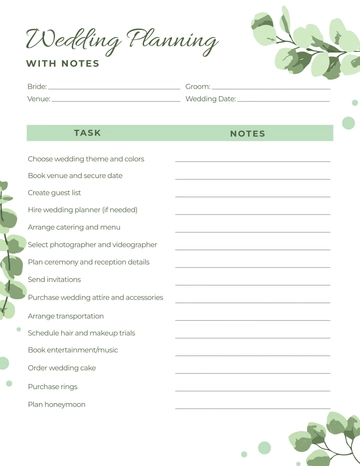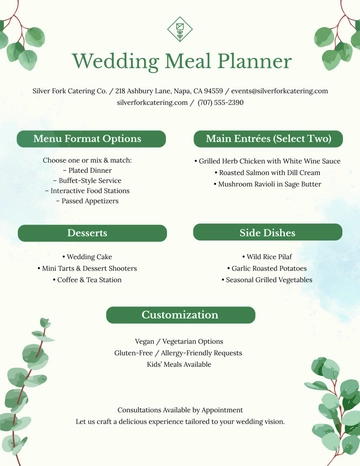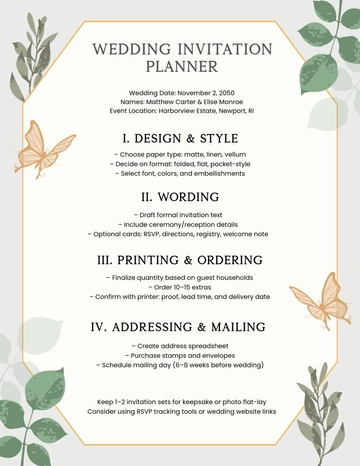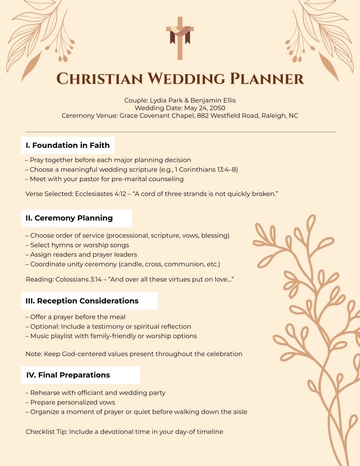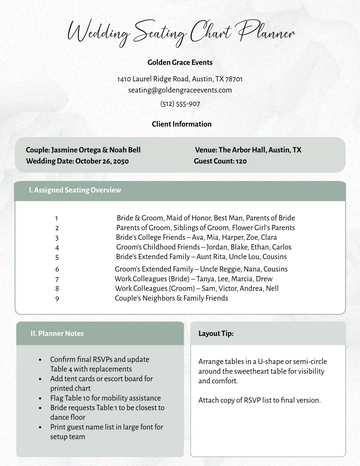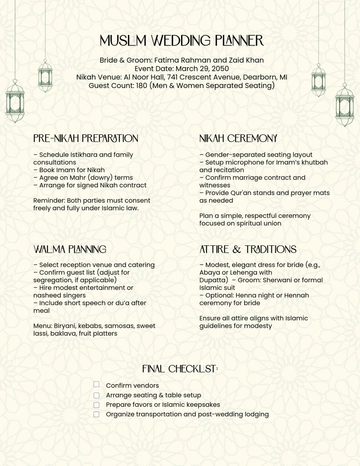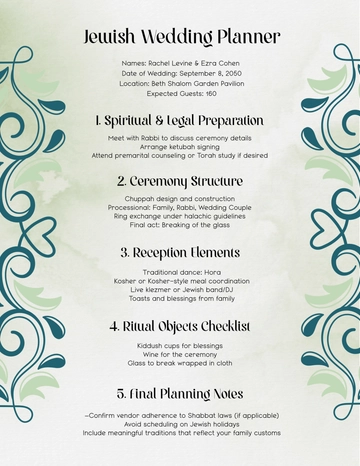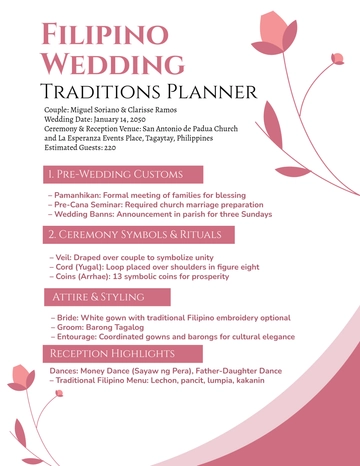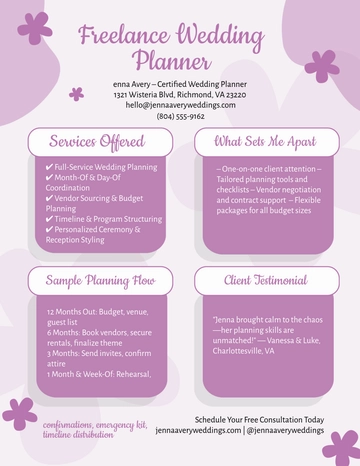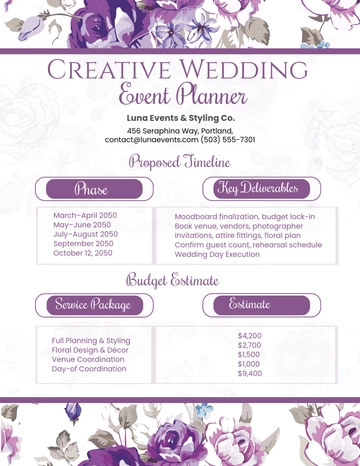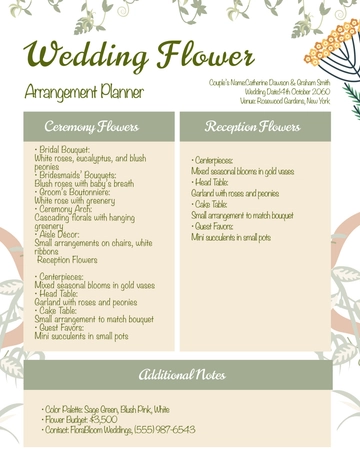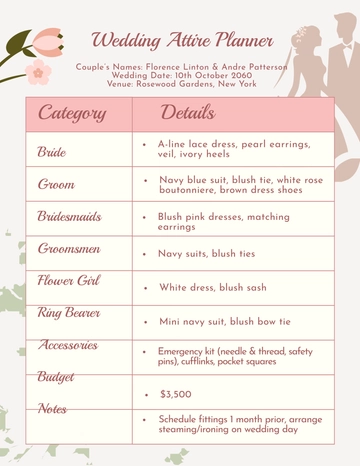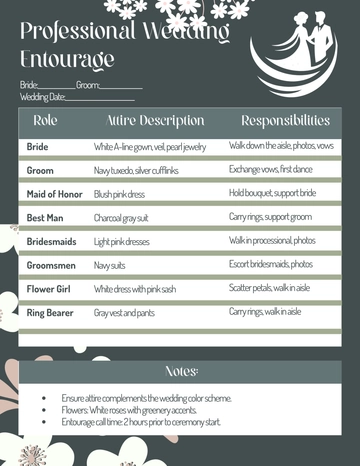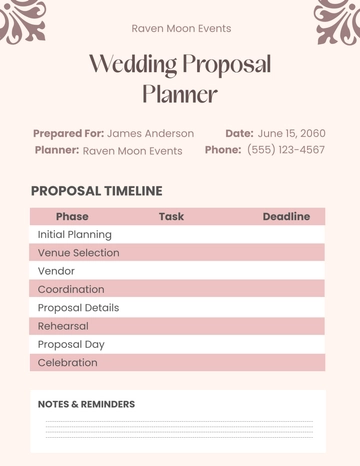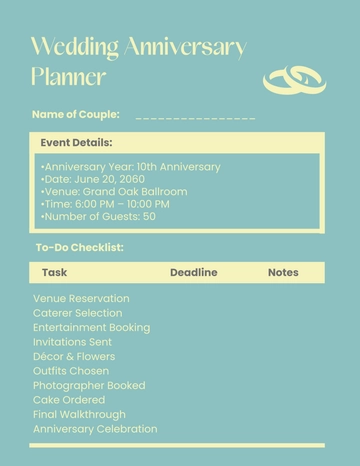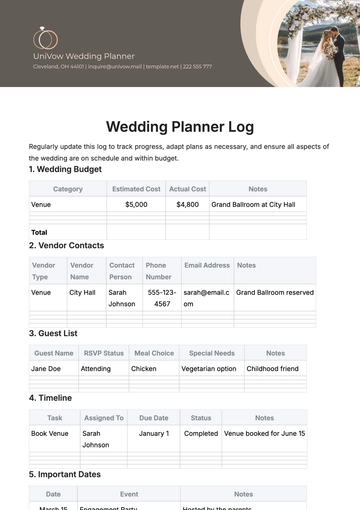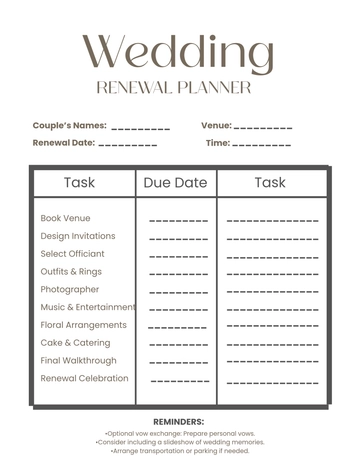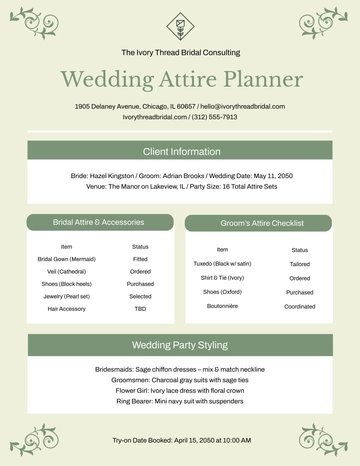Free Wedding Planner Guide
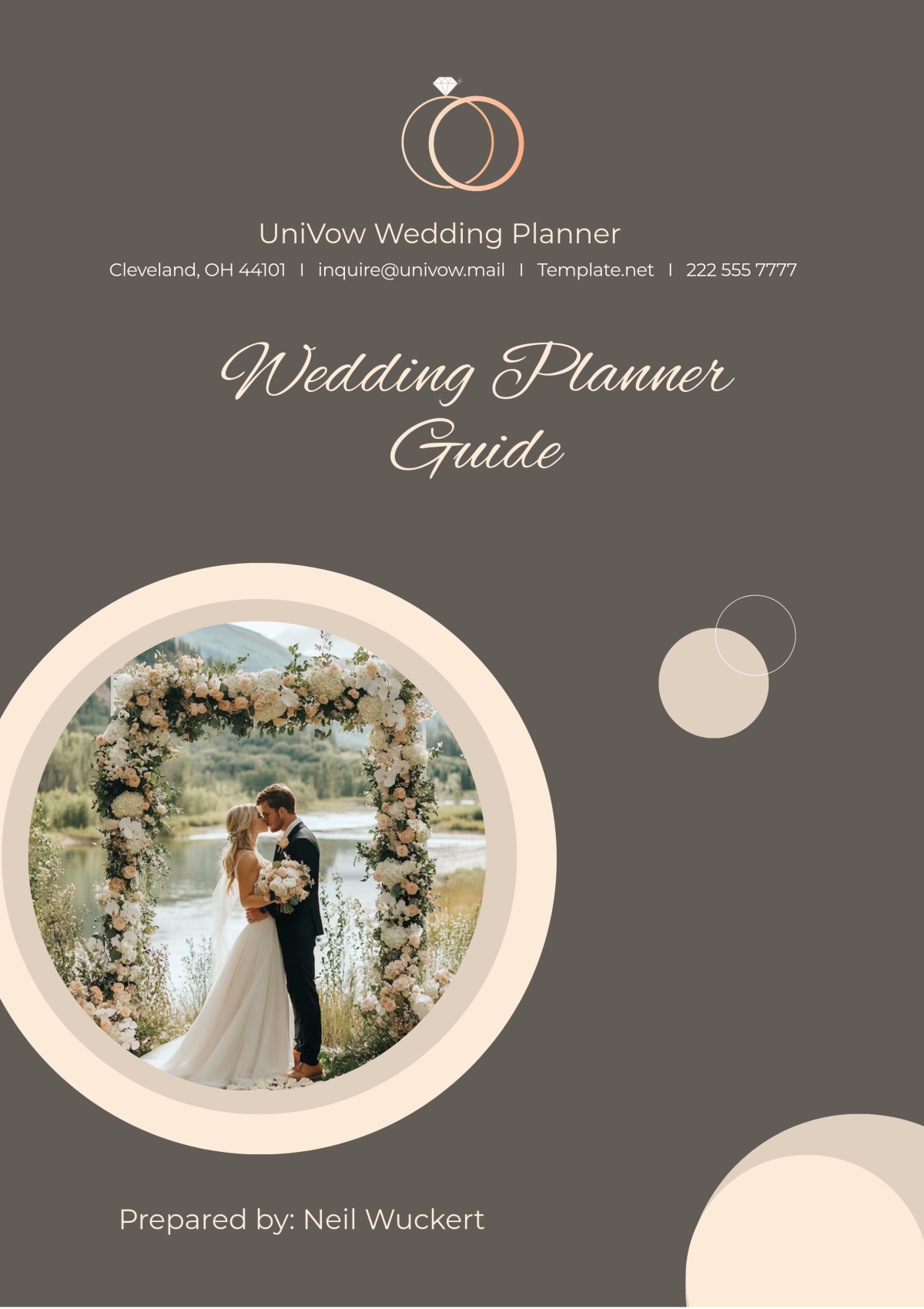
I. Understanding the Role of a Wedding Planner
A wedding planner serves as the primary architect of a couple’s wedding day, transforming their vision into reality through meticulous planning and coordination. Their responsibilities encompass a broad range of tasks, from selecting the ideal venue to managing logistics and vendor relationships. They assist couples in determining their budget, creating timelines, and selecting themes that reflect their personal styles, ensuring that every detail is thoughtfully curated. By leveraging their expertise and industry knowledge, wedding planners help couples navigate the often overwhelming landscape of wedding planning, making the experience enjoyable rather than stressful.
Moreover, wedding planners are adept at managing relationships with various vendors, including florists, caterers, photographers, and musicians. They conduct thorough research to identify reputable vendors that align with the couple's budget and aesthetic preferences. This includes negotiating contracts and ensuring that all parties are on the same page regarding expectations and deliverables. Additionally, planners often have established connections within the industry, which can lead to better deals and unique opportunities for their clients.
On the day of the wedding, the wedding planner's role shifts to that of a coordinator and problem-solver. They oversee the timeline, manage vendor arrivals, and handle any unexpected issues that may arise. This allows the couple and their families to fully immerse themselves in the celebration, confident that all aspects of the event are under control. In essence, a wedding planner acts as both a creative partner and a logistical expert, ensuring that every wedding unfolds seamlessly.
II. Initial Steps to Become a Wedding Planner
Embarking on a journey to become a wedding planner requires careful preparation and a clear understanding of the industry. By exploring current trends, pursuing relevant education, and gaining practical experience, aspiring planners can build a strong foundation to create memorable and seamless wedding experiences for their clients.
1. Research the Industry and Understand Wedding Trends
To establish a solid foundation as a wedding planner, it’s essential to conduct thorough research into the wedding industry. This includes familiarizing yourself with current wedding trends, styles, and themes that are popular among couples. Stay informed by reading industry publications, blogs, and attending bridal shows or expos. Understanding what is trending, from color palettes to venue types and décor options, will help you provide valuable insights to clients. Additionally, studying the diverse needs of various couples will allow you to tailor your services to accommodate different cultural and personal preferences, ultimately enhancing your versatility as a planner.
2. Take Courses or Training in Event Planning and Management
Enrolling in formal courses or training programs focused on event planning and management can significantly enhance your skills and credibility in the field. Many community colleges and online platforms offer specialized programs that cover essential topics such as budgeting, vendor management, logistics, and marketing. Look for programs that provide practical experience, enabling you to apply your knowledge in real-world scenarios. Additionally, some wedding-specific courses cover aspects like design and décor, helping you to refine your creative vision and execution.
3. Gain Experience Through Internships or Assisting Established Wedding Planners
Hands-on experience is invaluable when starting your career as a wedding planner. Seek internships or opportunities to assist established wedding planners to learn the intricacies of the trade. This exposure will provide insight into the day-to-day responsibilities of a wedding planner and help you develop essential skills, such as communication, problem-solving, and time management. Working alongside seasoned professionals will also expand your network and may lead to potential job offers or referrals in the future.
4. Obtain Any Necessary Certifications or Licenses Required in Your Area
While formal certification is not always required to work as a wedding planner, obtaining relevant credentials can enhance your professional credibility and attract more clients. Research the certifications offered by recognized organizations such as the American Association of Certified Wedding Planners (AACWP) or the Association of Bridal Consultants (ABC). Additionally, check your local regulations to determine if there are specific licenses or permits required to operate as a wedding planner in your area. Complying with these requirements will not only bolster your reputation but also ensure you operate legally within your region.
III. Key Responsibilities of a Wedding Planner
The role of a wedding planner encompasses a wide range of responsibilities that are crucial for a successful event. From initial consultations with couples to the meticulous coordination of every detail on the wedding day, planners ensure that each aspect aligns with the couple's vision. This section delves into the key responsibilities that define a wedding planner's role, highlighting the skills and expertise required to bring a couple's dream celebration to life.
Meeting with couples to understand their vision and budget.
Creating a detailed plan and timeline for the wedding day.
Managing bookings and contracts with vendors.
Coordinating rehearsals and ensuring the smooth flow of the event.
Handling any emergencies or unforeseen issues on the day of the wedding.
IV. Building a Network of Vendors
A strong network is crucial for a wedding planner to offer diverse options and negotiate better deals for clients.
Vendor Type | Services |
|---|---|
Caterers | Food and beverages |
Florists | Floral arrangements and decorations |
Photographers | Documentation and videography |
Entertainment | Music, DJ, live performances |
V. Best Practices for Wedding Planning
Successful wedding planning hinges on best practices that promote effective organization and clear communication. By prioritizing regular check-ins with couples, maintaining detailed timelines, and staying updated on industry trends, planners can deliver exceptional experiences. This section outlines essential best practices to help wedding planners efficiently manage events, ensuring that every detail aligns with the couple's vision and budget.
Maintain regular communication with the couple to ensure their needs and preferences are met.
Stay organized with a detailed checklist and timeline for each wedding.
Have contingency plans in place for every aspect of the wedding.
Keep up with the latest trends to offer fresh ideas to clients.
Manage budgets efficiently to prevent overspending.
VI. Step-by-Step Wedding Planning Timeline
Follow this timeline to ensure everything is prepared and executed perfectly for the couple's big day.
Timeline | Tasks |
|---|---|
12-18 Months Before |
|
9-12 Months Before |
|
6-9 Months Before |
|
3-6 Months Before |
|
1-3 Months Before |
|
1 Week Before |
|
VII. Conclusion
A successful wedding planner embodies a unique blend of creativity, organization, and exceptional communication skills, all of which are essential to transforming a couple's dream wedding into a stunning reality. By understanding the intricacies of the wedding planning process—ranging from initial consultations to managing day-of logistics—planners can create personalized experiences that reflect the couple’s vision and style. Every wedding is a special event, and a skilled planner ensures that each detail aligns harmoniously, resulting in a memorable celebration for both the couple and their guests.
By following this comprehensive guide, you will be well-equipped to plan and execute seamless wedding events, helping couples navigate the challenges of the planning process with confidence. The skills and best practices outlined in this guide will empower you to meet the diverse needs of your clients while staying organized and on budget. As you embark on this exciting journey in the wedding industry, remember that [Your Company Name] is here to support you every step of the way, providing resources and expertise to enhance your planning experience. Embrace your passion for creating beautiful moments, and you’ll find fulfillment in making dreams come true on one of the most significant days in a couple’s life.
- 100% Customizable, free editor
- Access 1 Million+ Templates, photo’s & graphics
- Download or share as a template
- Click and replace photos, graphics, text, backgrounds
- Resize, crop, AI write & more
- Access advanced editor
Simplify your wedding planning with Template.net’s Wedding Planner Guide Template. This customizable and editable template offers comprehensive guidance for organizing every detail of your special day. Fully editable in our Ai Editor Tool, you can easily tailor the guide to suit your preferences and ensure a smooth, stress-free planning process.
You may also like
- Aesthetic Planner
- Hourly Planner
- Daily Planner
- Weekly Planner
- Monthly Planner
- Planners Yearly
- Event Planner
- Project Planner
- Calendar Planner
- Student Planner
- School Planner
- Teacher Planner
- Kawaii Planner
- Budget Planner
- Life Planner
- Meal Planner
- Study Planner
- Business
- Workout Planner
- Work Schedule Planner
- Party Planner
- Social Media Planner
- Baby Shower Planner
- Book Planner
- Planner Cover
- Debt Planner
- Desk Planner
- Diet Planner
- Family Planner
- Fitness Planner
- Goal Planner
- Health Planner
- Medical Planner
- Holiday Planner
- Homework Planner
- Itinerary Planner
- Journal Planner
- Personal Planner
- Route Planner
- Smart Goal Planner
- Travel Planner
- Wedding Planeer
